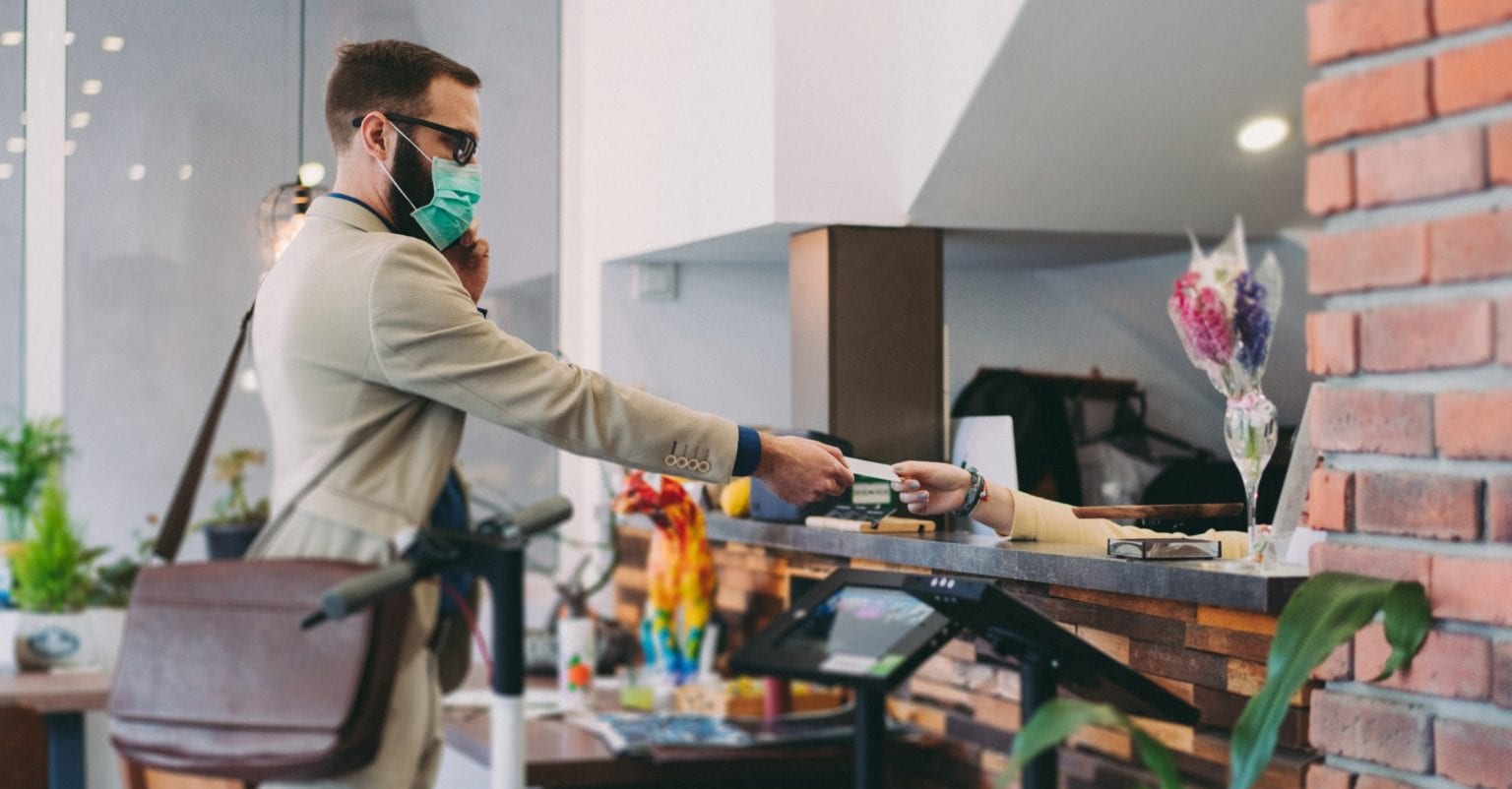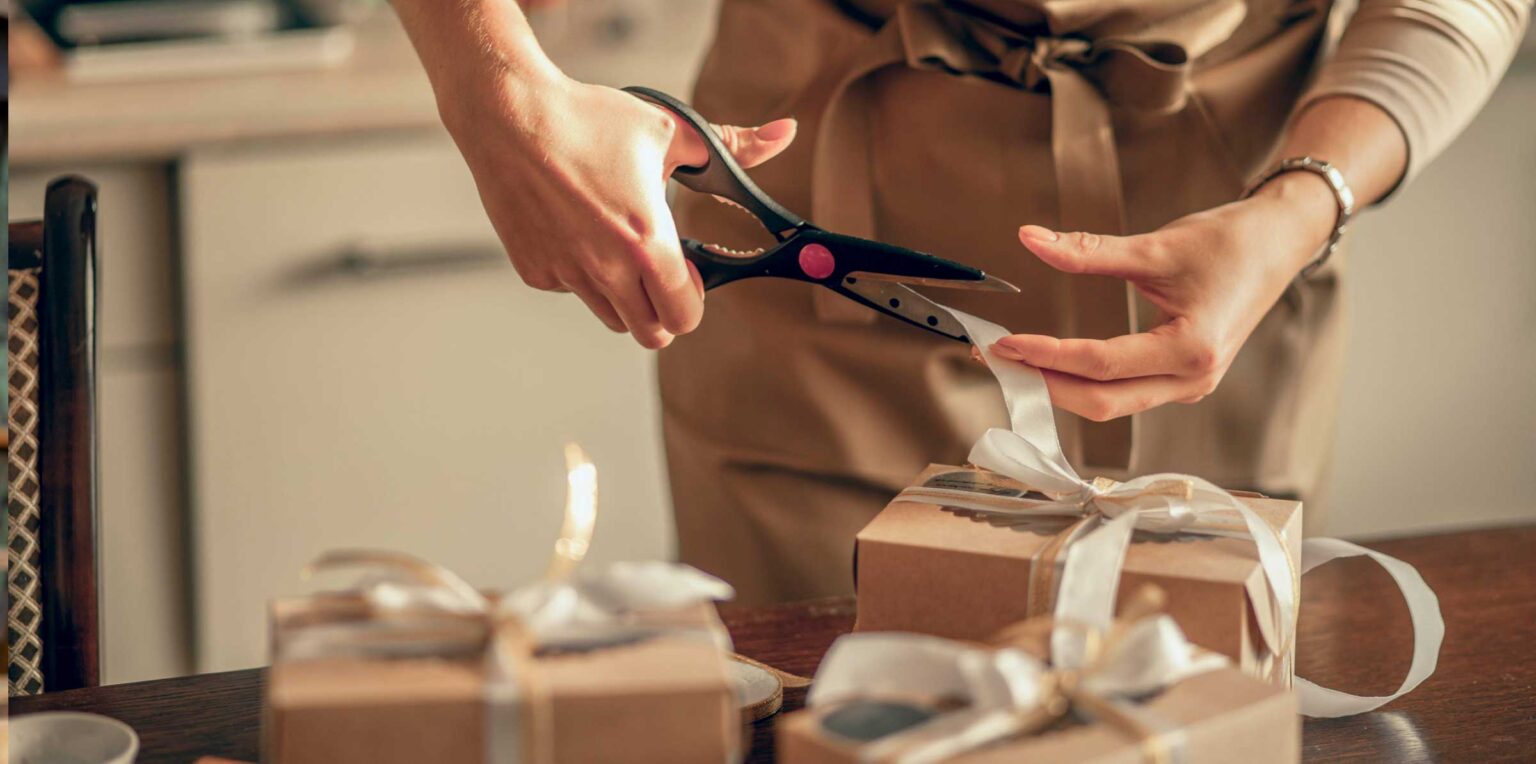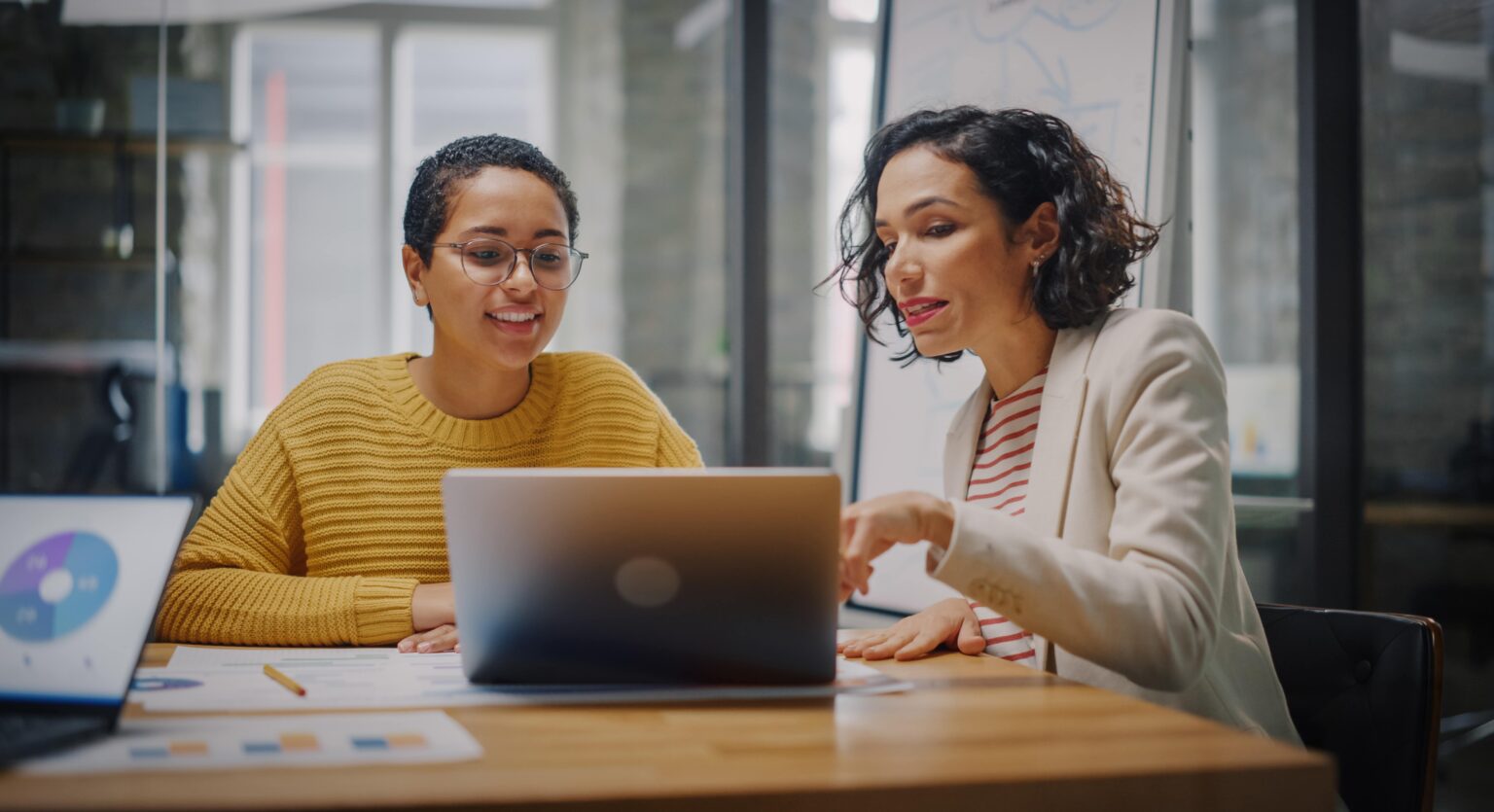Five Australian small business owners share their best, simple tips for creating spaces that will help to prevent the spread of COVID-19.
One single sneeze can send around 100,000 contagious germs flying into the air, rendering various surfaces hazardous for days. It’s facts like this that has many small business owners feeling nervous as they invite customers into their recently opened doors.
Aside from rigorous cleaning schedules and hygiene practices, there are many simple and affordable changes you can make to your premises to prioritise the health and safety of both your employees and customers.
Giving customers peace of mind
If you visit one of the two Rough & Bare cafés in Sydney’s north, on the floor you’ll see heart-shaped stickers that read, “Choose Love” (pictured below).
Owner Anthony Milotic says he wants to make the social distancing message a positive one. “We want people to choose love, not fear,” he says.
Rough & Bare’s distinctive floor decals are just one of the many simple measures Milotic has introduced to reduce the risk of infection at his wholefood cafés.
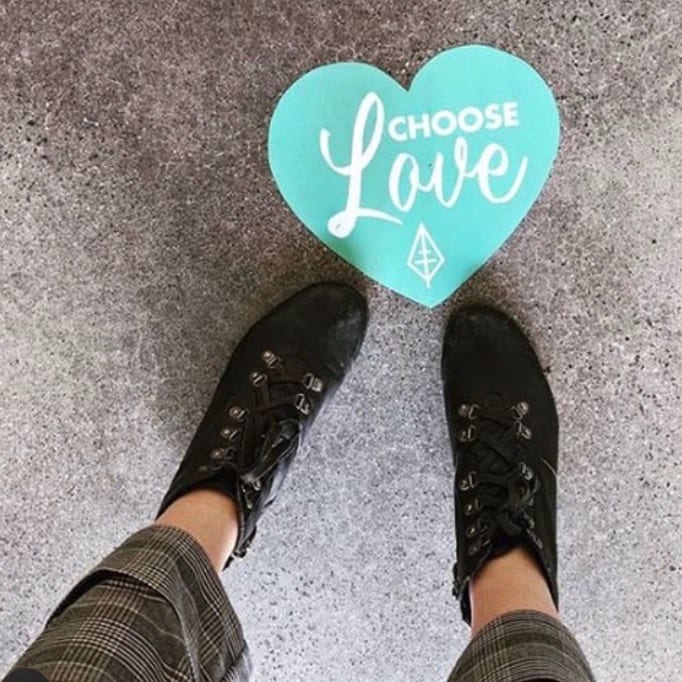
Both cafes reopened from lockdown with reduced seating, protective hygiene screens at points of sale and coffee machines, and conventional signage around the venues reminding people to remain 1.5 metres apart.
But you don’t have to stop at that.
Affordable technology solutions
Want to create a low-touch business? Voice-activated virtual assistants such as Google Home or Amazon Alexa can be set up to control your security, lighting, heating and air conditioning.
Small business owners might be quick to dismiss investing in technology, fearing it will be too expensive, but the reality is that many of these voice-activated technologies can be quite affordable.
For example, you can purchase voice-activated light bulbs for as little as $20 and the miniature versions of virtual assistants retail at between $40-$50.
At Rough & Bare, Milotic installed a contactless ordering system that both takeaway and dine-in customers can use.
“They can tap on, read the menu, order and the food will be delivered,” he says.
Garth Belic, owner of payroll consultancy Pay Cat, introduced facial recognition software, which meant his staff now don’t have to touch anything to clock in each day.
“We use a software called NoahFace that utilises biometric capabilities to identify employees accurately and safely without the need for entering a PIN or fingerprints. This eliminates clocking in stations as a vector for transmission,” he says.
“This also has reduced bottlenecking and queueing when employees finish their shifts at the same time, minimising close contact.”
Employee’s temperatures can also be checked using this platform.
“Managers of employees that are over the temperature level are immediately notified and will act on it accordingly,” says Belic.
Considerations when starting fresh
Casey Castro owns a yoga studio in Sydney’s Bondi Junction, Sydney Yoga Collective. With yoga goers forced to stay home and take classes online, Castro decided to take advantage of the lockdown period by renovating her studio.
“We added in new floors and shelves. Internally, the whole place was brand new,” she says.
Knowing she’d be conducting an even more thorough clean than usual once able to reopen again, Castro was strategic about the materials she chose to use.
“We used to have timber floors, which looked really good, but they couldn’t be properly sanitised. So instead, we chose a commercial grade vinyl floor, which is much easier to clean,” says Castro.
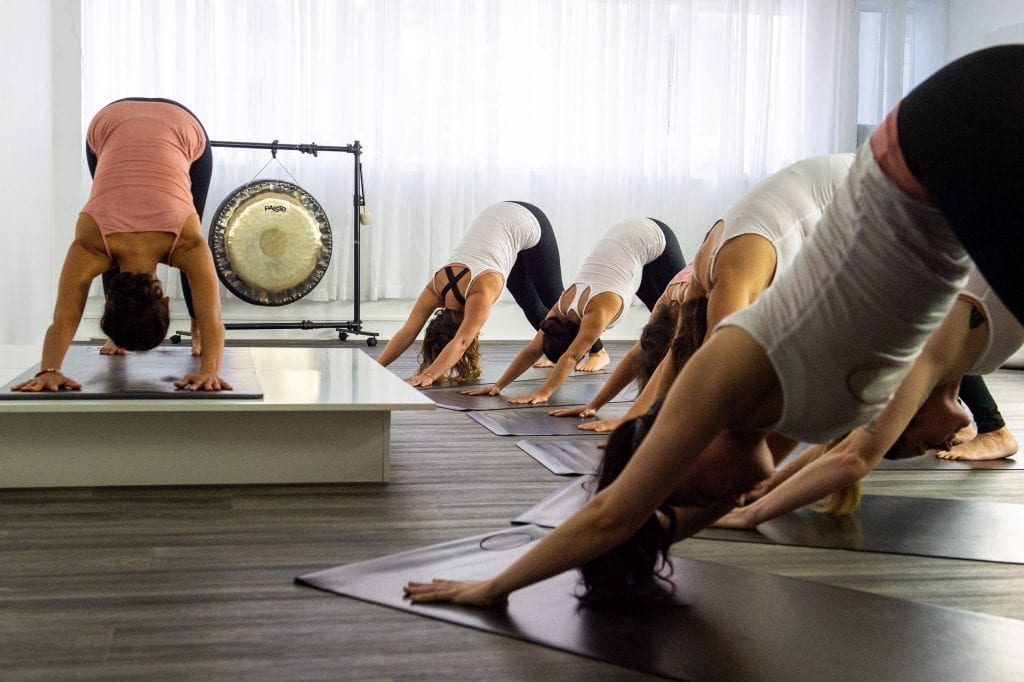
Image: Yoga class at Sydney Yoga Collective
We’ve taped ‘barriers’ to the floor that guide people where to walk and floor markers indicating where they can place their mats to ensure social distance is maintained,” she says.
To give staff and clients peace of mind, Castro also installed a powerful air purifier and implemented a new policy that meant teachers could no longer touch students to assist with yoga poses. Instead, all corrections are now relayed verbally.
While it might cost a little upfront to make your business COVID-safe, the cost of not doing so could be far greater.
“The last thing we want is to have our students question what we are doing, so all our cleaning practises are located on our website and on our walls in the studio. Getting back to business means implementing changes and strategies so our students feel safe and secure,” Castro adds.
Designing spaces for social distancing
Kymberlee Stone, who runs Flock, a popular café in Lismore has also incorporated COVID-safe strategies into her recent renovations. Table service has replaced counter service and a wide space between the coffee bar and customer tables now serves as a walkway to the bathroom.
The new design means seating capacity has reduced from 120 to 30 people.
“We’re very mindful about how everything is laid out,” she says. “It’s a large space – we’ve added floating walls and different seating options to make the space feel intimate.”
The hardest part of the COVID-19 pandemic is not being able to plan,” says Stone, who is doing what she can to prepare for the unknown.
“We’ve ripped out a front window and put a takeaway noshery straight onto the footpath, so that has removed people who previously waited for takeaway inside – they’re now waiting out in the open. It also means if we are closed down again, we can operate takeaway straight away.”
Get all the relevant information
It can be overwhelming to make sure you’re covering all your bases when it comes to designing a COVID-safe workplace and a big part of that comes down to the behaviours of your staff and clientele.
Tom Wade (pictured below), Head Trainer at Phoenix Fitness & PT, did this through an hour-long course run by Deakin University and the Australian Industry Group. It’s an eLearning platform called Occupational COVID-19 Workplace Training Scheme, which is designed to help business owners to stay up to date with the relevant information about infectious disease management, so they can confidently open their doors to the public again.
“The course really helped to bring customers back to me,” Wade says.
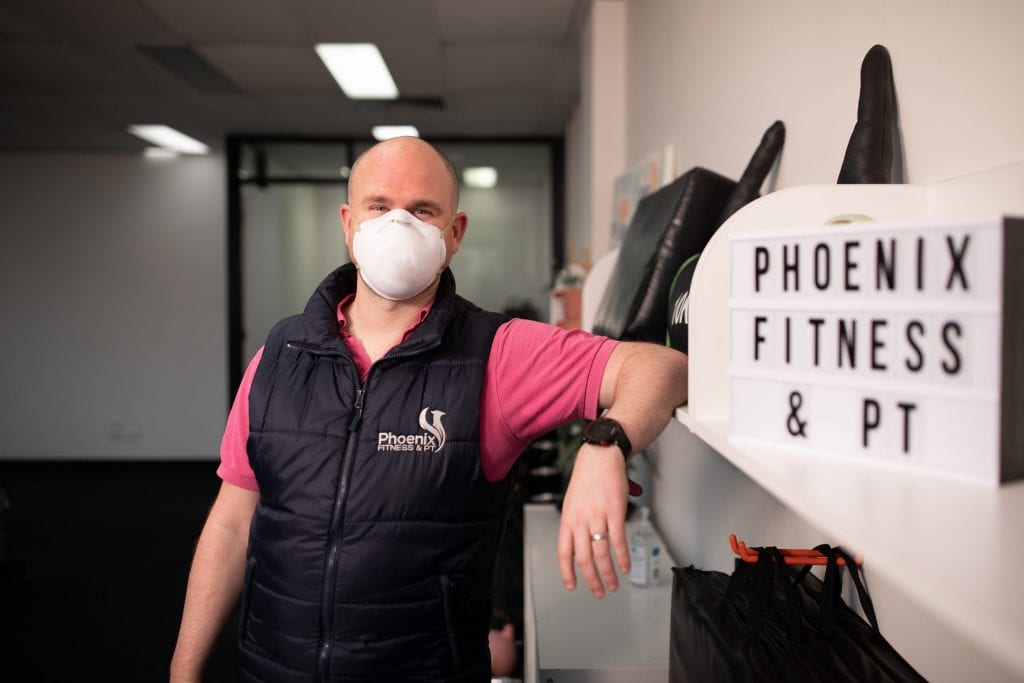
“When reopening my personal training studio, I was able to talk to my customers about the course that I had done. They can see that I was taking the necessary steps and that I take COVID-19 seriously.”
